The AC blog offers new perspectives around how justice in the arts is interpreted, documented, and enacted.
The Alternate Currents blog is home to an extensive archive of articles, interviews, critical writing, and creative research that bring issues around justice in the arts into clearer focus.
“The idea of humans defined as against/outside nature is deeply embedded in our dominant culture. It’s baked into our vocabulary, and is mostly notably present in western, colonial, extractive culture. I’d like to find other ways to talk about what is natural or unnatural that don't entail ascribing a special status to humans. This is difficult.”
“We must be part of the cultural and technological changes as proactive developers rather than passive consumers. We must be able to create, change and develop new ways of exercising our right to build a more technologically just future.”
On June 13th, Paul High Horse, John Paul, and Barbara Robins sat down with Annika Johnson for a conversation about methods and materials Native and Indigenous artists and culture bearers use to interrogate past erasures, reclaim the present, and vivify Indigenous futures.
“There were many fears at the beginning of the war—but none greater than the sense of doom that seemed at once incredible and certain. This was especially true when the neighboring towns fell, and the enemy swelled into these spaces like a flood ready to drown our village.”
On April 11th, Noni Williams, G. Anthony Galdamez, Ken Heinze, and Carlie Waganer sat down for a conversation about how we define and assess what constitutes failure in creative processes that hinge on investigation, discovery, and uncertainty.
On Friday, March 14th, we sat down with artists and organizers Lydia Cheshewalla, Patrick Costello, and Alajia McKizia to talk about compost as a mechanism for transformation, renewal, and exchange, and explored affinities in their work that bind compost to history, inheritance, and carrying certain types of knowledge forward.
“The fire burns all night and there are many awakenings and many small deaths. The gilded sea of yesterday will spend one breath as ash, then burst forth again, tender and green—the sweet audacity of renewal.”
“Just as two notes come together: a moment of divine harmony
Is green matter and brown matter perfectly balanced?”
“On the evening of September 29, 2022, a protest took place at Dewey Park to oppose the removal of the Harney Street bike lane. Stretching a mile and a half, this was Omaha’s first protected bike lane, connecting Midtown to the Old Market.”
“Refuse the narrow definitions of value and use that are assigned to objects by capitalism.
Refuse what relies on waste for profit.
Refuse what is rejected as trash, what is seen as useless and de-nied the chance to be useful.”
On December 11th, artists and organizers Amanada Huckins, Alex Jochim, Joseph Orzal, Bilgesu Sisman, Marcey Yates, and Rachel Ziegler discussed navigating alternative models of economic organization and building resilience in the face of precarity and the uncertain future of arts funding.
On October 18th, Mi’oux Stabler and Lydia Cheshewalla sat down with Casey Welsch for a conversation about food sovereignty’s role in confronting generations of colonial dispossession and revitalizing community health and cultural autonomy.
“The struggles of artists and cultural workers for fair compensation and financial stability/sustainability cannot and should not exist independent of struggles for housing, healthcare, education, and protections led by people from all walks of life.”
“The composition layers keyboard played by Mary Elizabeth Jo Dixen Pelenaise Kapi’olani Lawson, her vocals (chanting, reading, humming), sounds inside a kitchen, and the voice of Paul Stephen Benjamin singing ‘Black Is the Color.’”
“Indigenous people of this continent have ancestral responsibilities and rights that others do not. Each of us is born with the opportunity to serve our community in a way that fulfills a need. My energy goes towards forging relationships with the plants from this region that remain.”
“Taking the project from its inception to completion helped us deepen our respective creative practices and our relationships with each other and our collaborators. It’s also a process that we invite others to copy freely and use as a blueprint for making similar work in different social and geographic contexts.”
“East, West, North, South, each occupy equal weight on the compass, and all regions enjoy autonomy and self-determination to their fullest possible expressions. Poverty is a memory and prosperity is promised to all. We have achieved Utopia. Now, where do you want to eat?”
“I remember stepping off the plane and thinking, I've made it. This is the promised land. A utopia. A place where dreams come true. Unfortunately over the last decade, I've watched this vision of what America claims to be, fall apart right in front of my very eyes. This utopia is a dystopia in disguise.”
“The bathroom is a space where people can be completely themselves. This is a sacred and safe space because there is no one else around to tell them otherwise, unless it were to be interrupted or intruded. There are an endless number of events that can take place in this setting throughout our lives, whether positive, negative, or neutral.”
On June 14th, Rainy M., Lee Emma Running, and Lauren Simpson sat down for a conversation about positioning creative practice as an investigative tool to explore the relationships between power, touch, consent, and control.
“The World Health Organization (WHO) defines 55dB to be the threshold at which noise becomes harmful to human health. Noise and air pollution are interlinked, as both are typically birthed from machines, transportation, and propagation systems.”
On April 12th, Amanda Huckins, Carolyn Erickson and Eden Erickson, Maritza N. Estrada, and Kelly Seacrest sat down for a conversation about mutual caregiving and its potential as an embodied practice to build solidarity within creative communities.
“Horseplay is fooling around. Horseplay workshop is organized fooling around. We are serious about practicing but not always serious within the practice.”
“There is one nurse,
One doctor,
One psychiatric specialist per 100,000 residents in a single district.”
On February 7th, members of Amplify’s 2023-24 Alternate Currents cohort sat down to celebrate the launch of We Free Us, their collaborative publication, and talk about working together over the past year to to build relationships and shore up regenerative modes of mutual exchange.
“Providing care is not profitable because the value assigned to providing care is low, while the actual human cost to provide care is incredibly high.”
On November 29th, Manne Cook and SaRena Freet sat down with Amanda Huckins, to consider ‘the commons’ more deeply and discuss the terms and social charters that help artists negotiate the often messy process of collectively managing shared resources for the wellbeing of the many, rather than the few.
On September 27th, Annika Johnson, Diana Martinez, and Alajia McKizia joined Jared Packard to consider how critical and evaluative frameworks might change to more fully embrace the uncertainties, indecipherable rewards, and generative failures inherent in socially and politically engaged work.



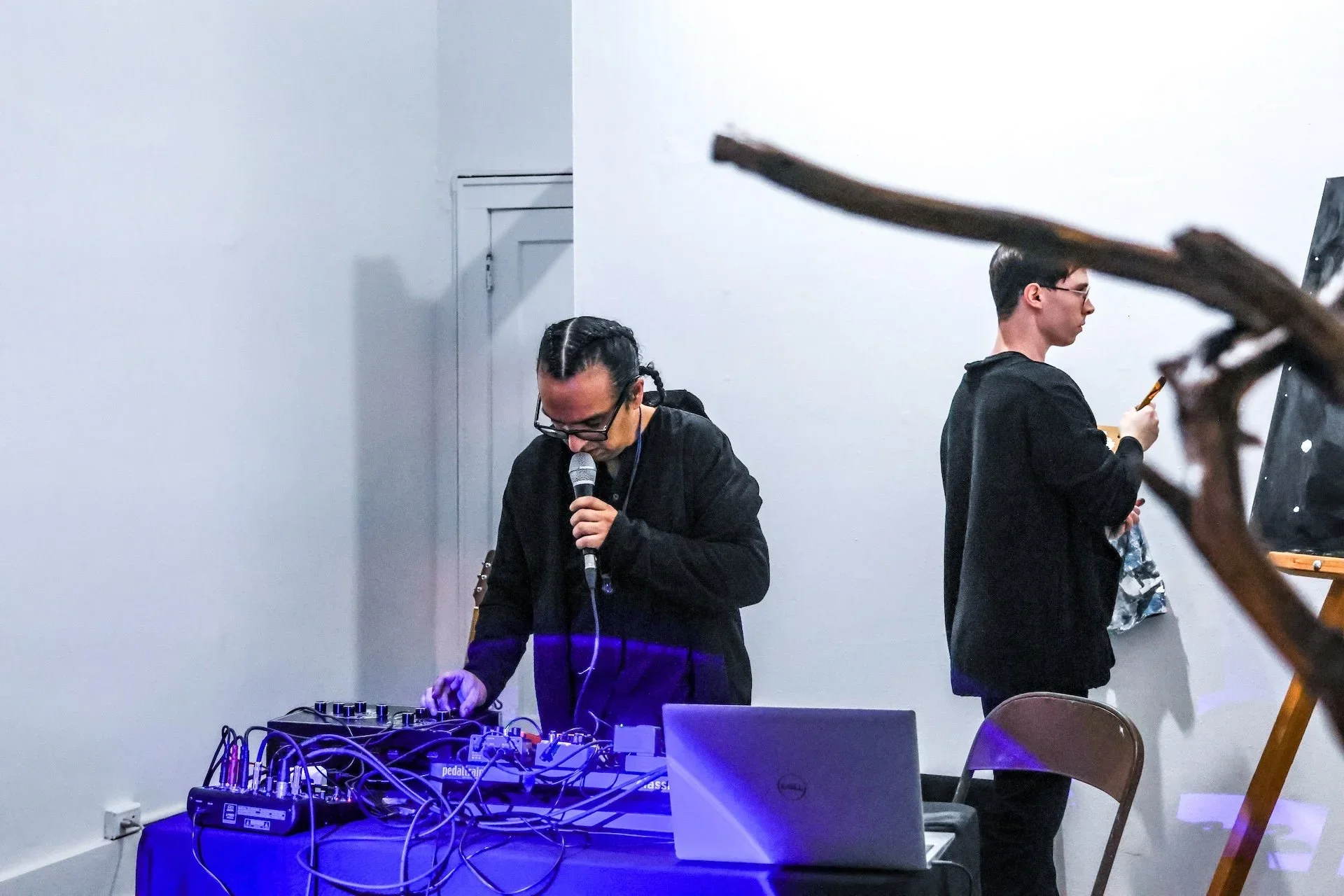







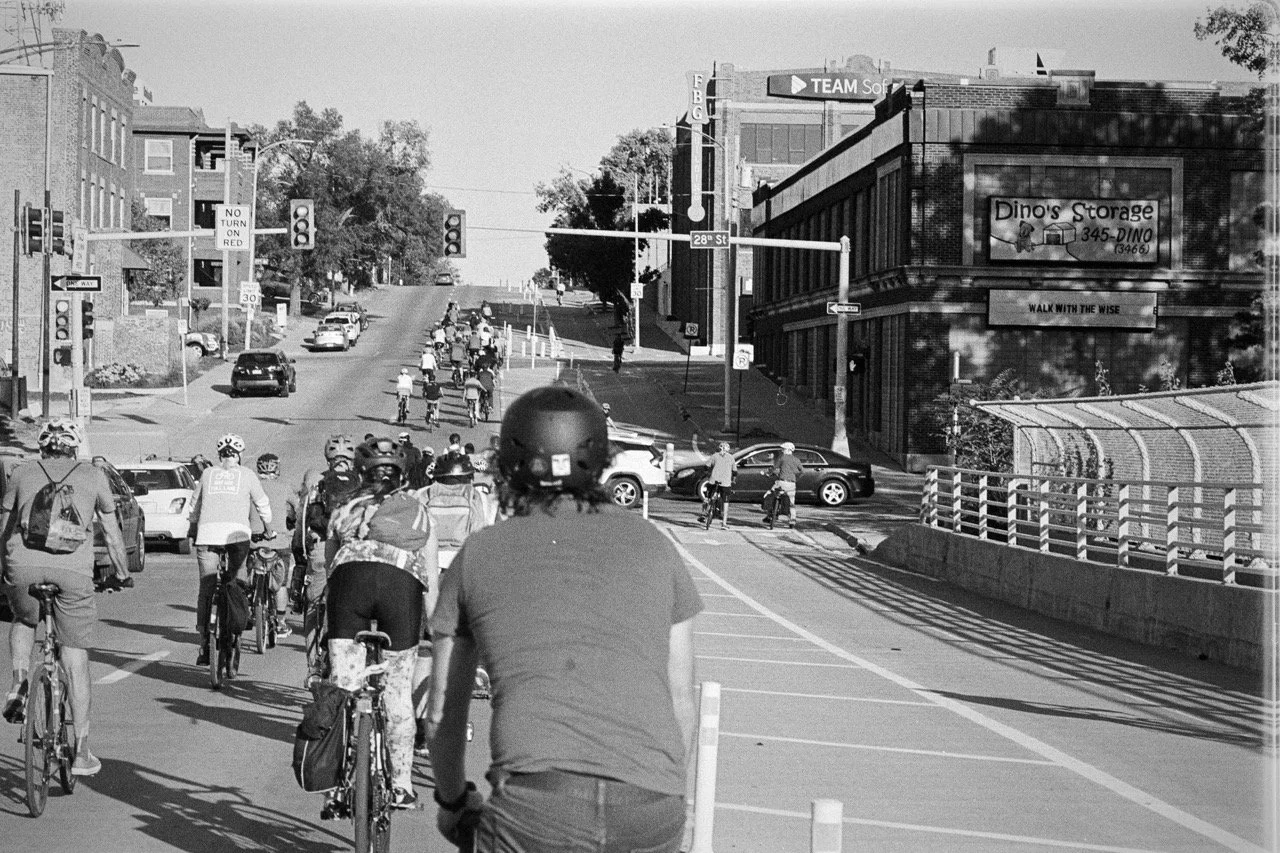








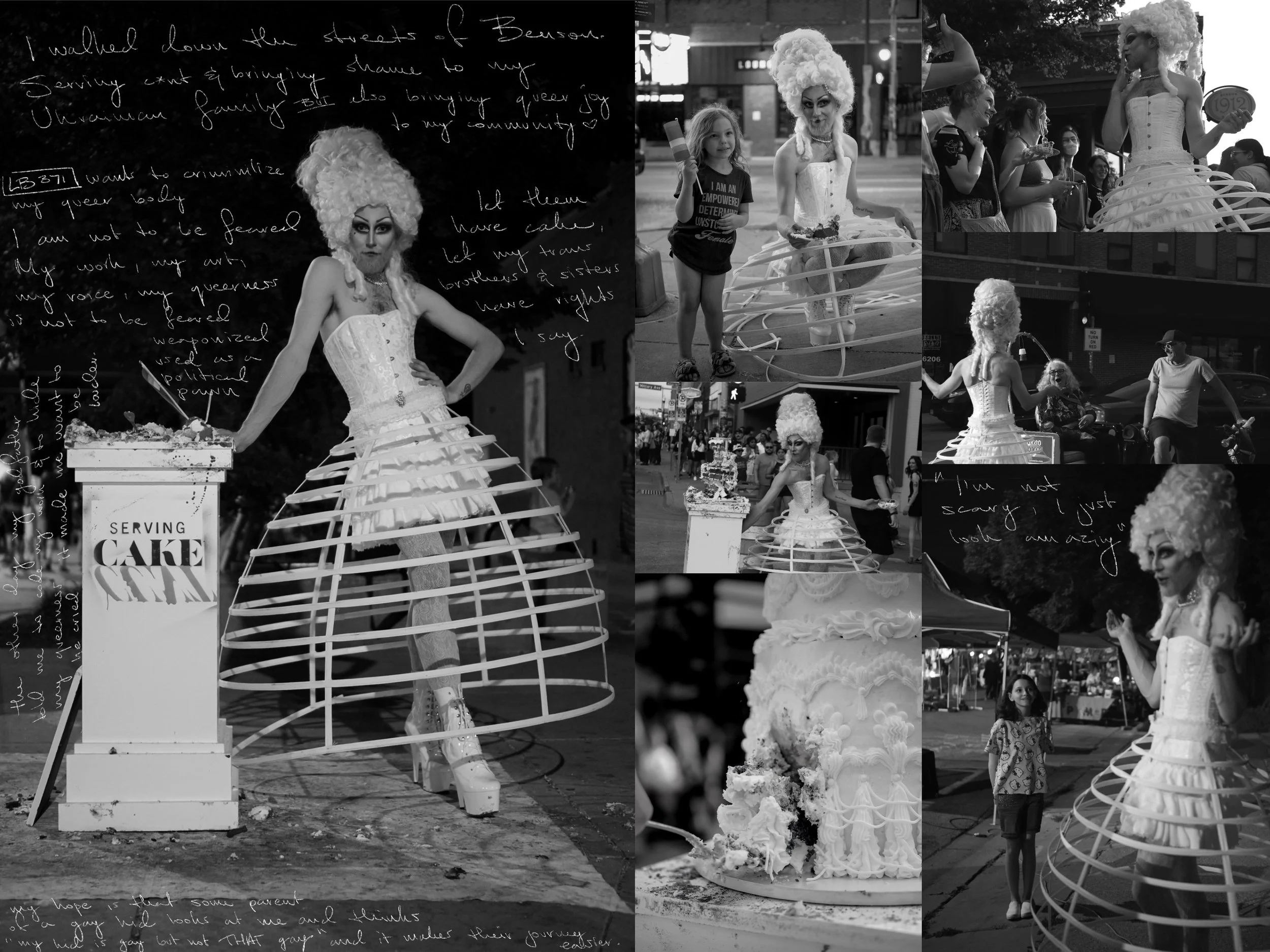

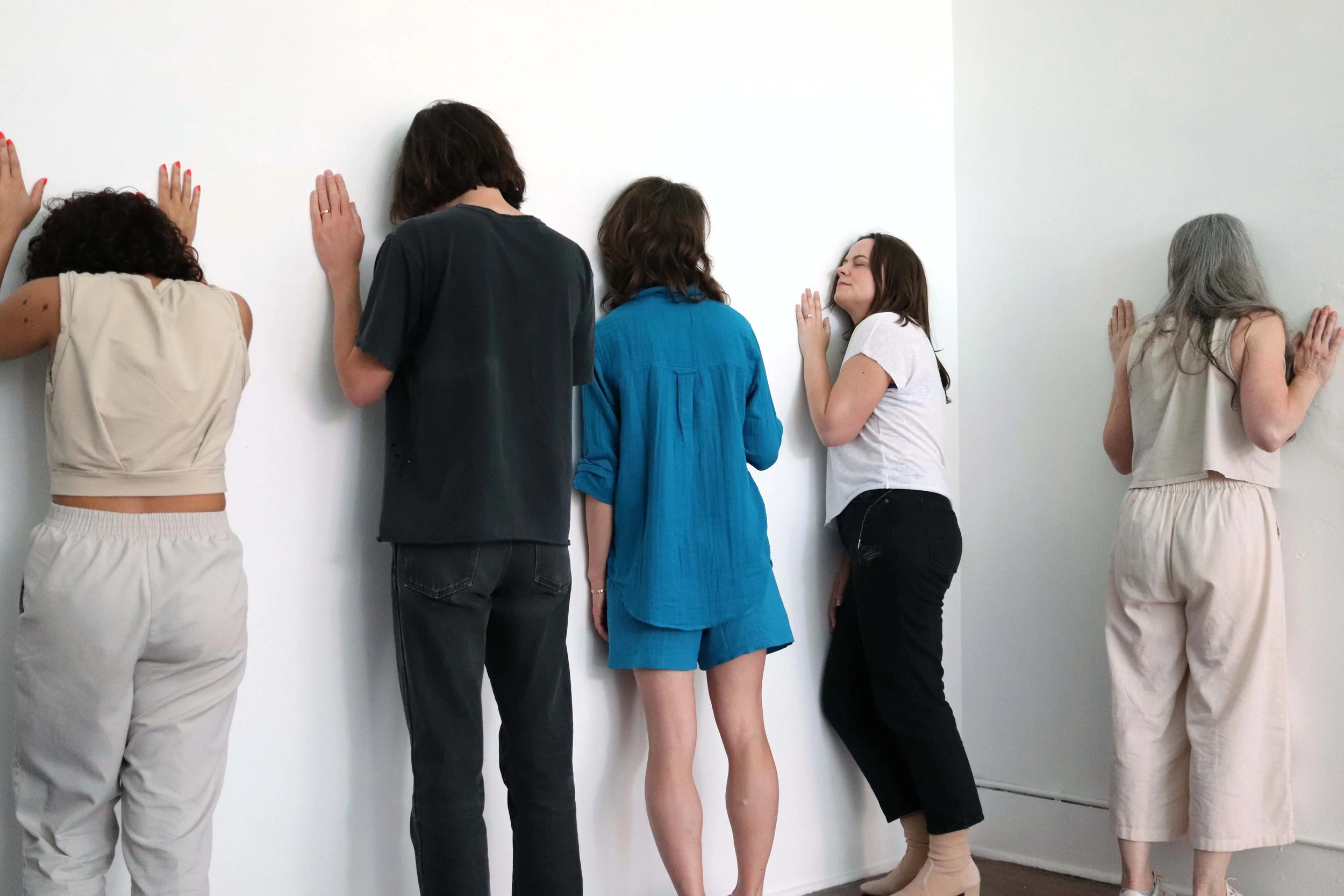


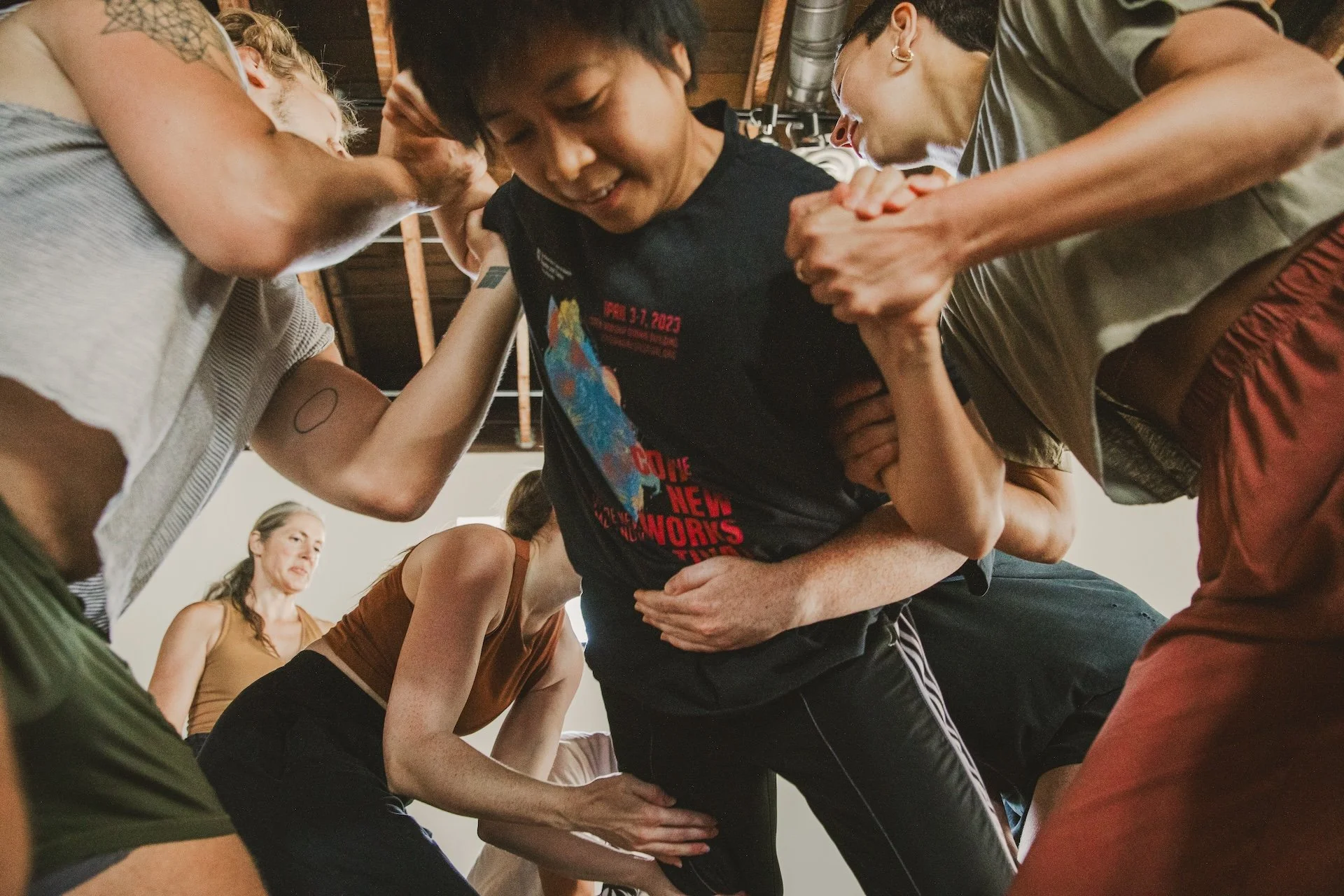





On October 12th, Caitlin Cass, Ilaamen Pelshaw, and Ella Weber sat down with Michael Griffin to take a closer look at irony, contradiction and exaggeration as critical strategies in creative practice that subvert dominant narratives and challenge long-held assumptions with a wink and a smile.